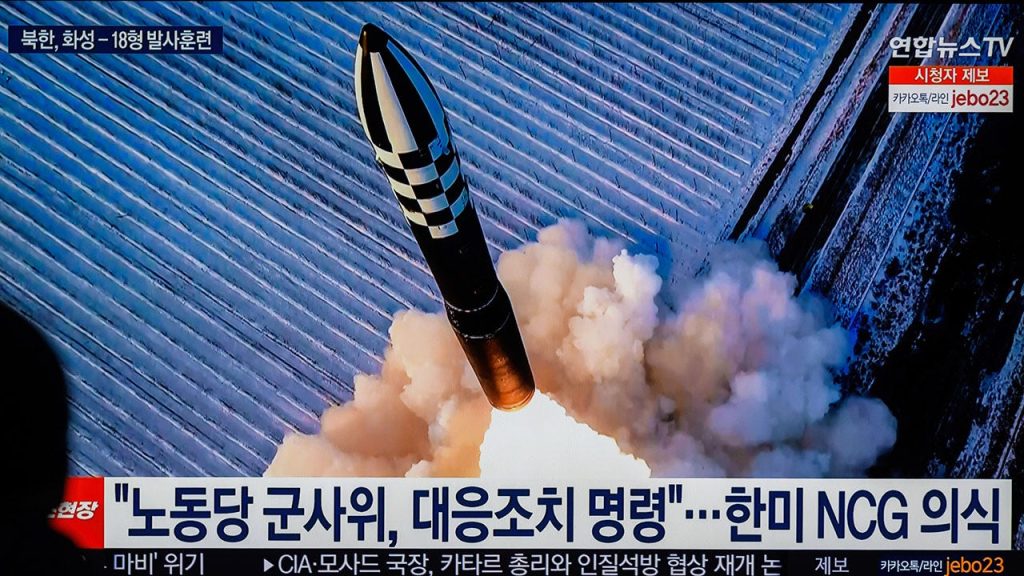North Korea launched a long-range ballistic missile towards the Sea of Japan on Wednesday night, following reports from South Korean officials that the North was preparing to test-launch an intercontinental ballistic missile (ICBM) with the longest flight time. The missile was launched from an area near Pyongyang at 7:10 a.m. local time and fell into the sea 87 minutes later. The Japanese government stated that this could be a new type of missile and had the longest flight time of any North Korean missile launch. Japanese Prime Minister Shigeru Ishiba confirmed that there was no reported damage from the launch.
South Korea’s Defense Intelligence Command reported that North Korea had placed a mobile launcher in preparation for a potential ICBM launch around the time of the U.S. presidential election. The National Security Council strongly condemned North Korea’s actions, stating that the launch was a violation of multiple UN Security Council resolutions. While the launch did not pose an immediate threat to U.S. personnel or territory, it raised tensions and risks destabilizing the security situation in the region. The United States is coordinating with allies and partners to ensure the security of the American homeland and its allies in the region.
The last time North Korea tested an ICBM was in December of the previous year, fuelled by solid propellant and fired from a road launcher. This missile was also launched at a sharply raised angle and had a flight time that could potentially put anywhere in the U.S. mainland within range. Japan strongly condemned North Korea’s actions, emphasizing that they not only threatened Japan but also the international community. The United States urged all countries to condemn these violations and called on North Korea to cease its destabilizing actions and engage in serious dialogue. The U.S. national security team is closely coordinating with its allies and partners to ensure regional security.
North Korea’s launch of the long-range ballistic missile came just days after the country tested a ballistic missile earlier in July. The missile test in July marked the latest in a series of provocative actions by North Korea, raising concerns about the regime’s commitment to developing weapons of mass destruction. The launch on Wednesday once again highlighted the ongoing threat posed by North Korea’s missile programs, prompting strong condemnation from the international community. The United States reiterated its commitment to ensuring the security of its allies in the region and called for all countries to work together to address the destabilizing actions of North Korea.
The ongoing missile tests by North Korea have raised tensions in the region, with the potential for further escalation if the regime continues to defy international sanctions and resolutions. The United States, Japan, and South Korea have reiterated their commitment to maintaining peace and security in the region, while also urging North Korea to engage in dialogue to address its security concerns. The international community remains on high alert following the recent missile launch, with concerns about the regime’s intentions and the potential impact on regional stability. The United States continues to work with its allies to monitor the situation and respond accordingly to ensure the safety and security of the region.
As tensions remain high following the recent missile launch, the international community is closely monitoring North Korea’s actions and preparing for potential responses to address the ongoing threat posed by the regime’s missile programs. The United States, Japan, and South Korea are working together to coordinate their efforts and ensure a united front against North Korea’s provocative actions. However, further escalation of tensions in the region could have serious consequences for regional security and stability. It is essential for all countries to work together to address the threat posed by North Korea and prevent further destabilization in the region.













